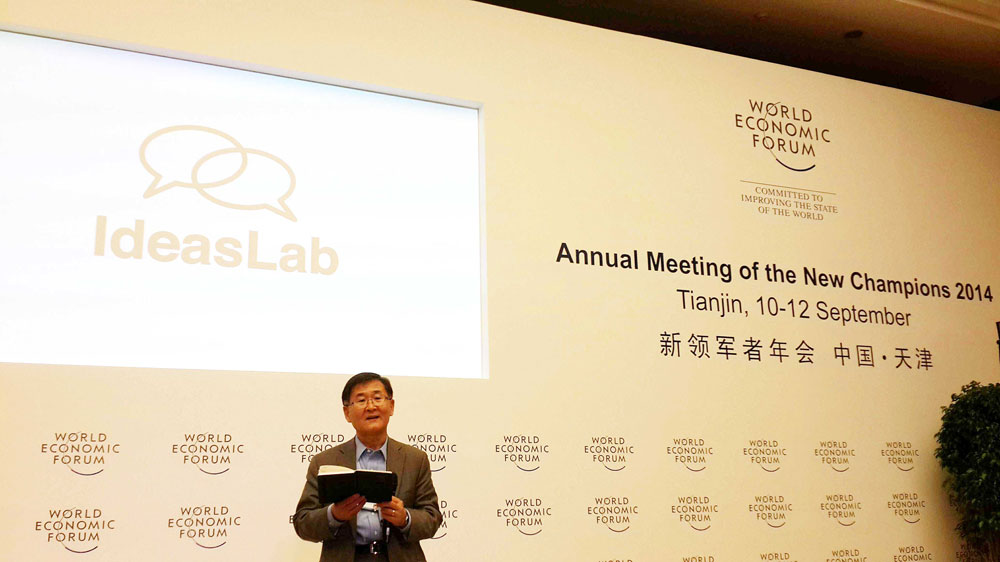
KAIST President Sung Mo Kang attended the Summer Davos Forum held in Tianjin, China, from September 10 to 12, as the sole participant to represent a university from his country. On September 10, he went on to participate in a specialized and private conference within Davos called the Global University Leaders Forum (GULF), with the presidents of eight other prestigious universities such as those from Carnegie Mellon, ETH Zürich, and Singapore National University; there president Kang discussed university-led technological innovations required for economic growth and development.
Apart from that, GULF hosted its own sessions called “Ideaslab” that dealt with the theme “value creation through innovation”. It was a place where ideas could be shared on how to solve world problems and stimulate economic development via scientific and technological advances. Not surprisingly, KAIST was the only Korean university to hold these sessions at the forum. In fact, KAIST was among the select few universities in the world, including Stanford, Oxford and Carnegie Mellon, to have been invited to run sessions at this event. Professor SangYup Lee and Hyunjoo Lee from the KAIST Department of Biochemical Engineering and professor Sangouk Kim and Keonjae Lee from the Department of Materials Science and Engineering gave their presentations on the development, application and potential of nanotechnology and started a debate with the rest of the participants.President Kang said “KAIST is becoming increasingly competitive on the global stage” and revealed, “I participated to keep up with the global trend in education and research and to cooperate with leaders from all over the world for our mutual development."
The World Economic Forum, otherwise known as the Davos Forum, first established the Global University Leaders Forum back in 2006, promoting active interaction between global leaders in industry, politics, economics and other related fields. GULF deals with important world issues such as higher education and research, seeks out solutions and holds 30 or so prestigious universities as its members.

